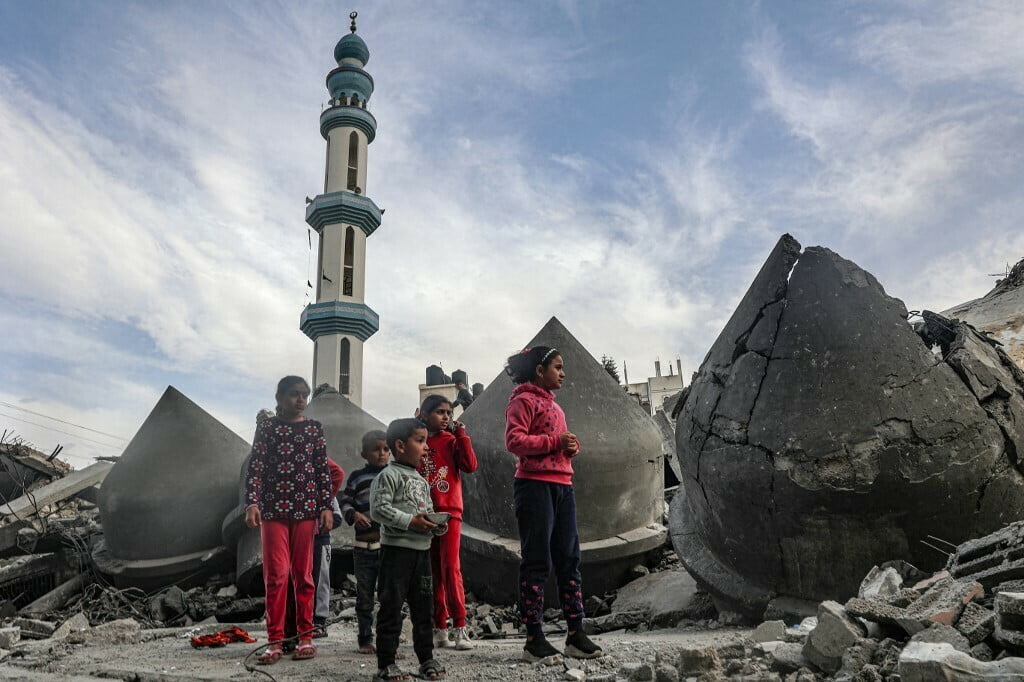As we observe Eid in our own traditions, let’s keep these children in our thoughts and pray for their safety and for enduring peace in their homeland.
Muslim children will be celebrating Eid at the end of the holy month of Ramadan. They will go for Eid prayers with their families, wear new clothes, partake of special Eid delicacies, visit relatives and friends, receive gifts but alas the children of Gaza will have few of those privileges.
The children are among the worst hit, witnessing loud explosions, death, and destruction, and amidst the chaos, they fear losing their parents or siblings next.
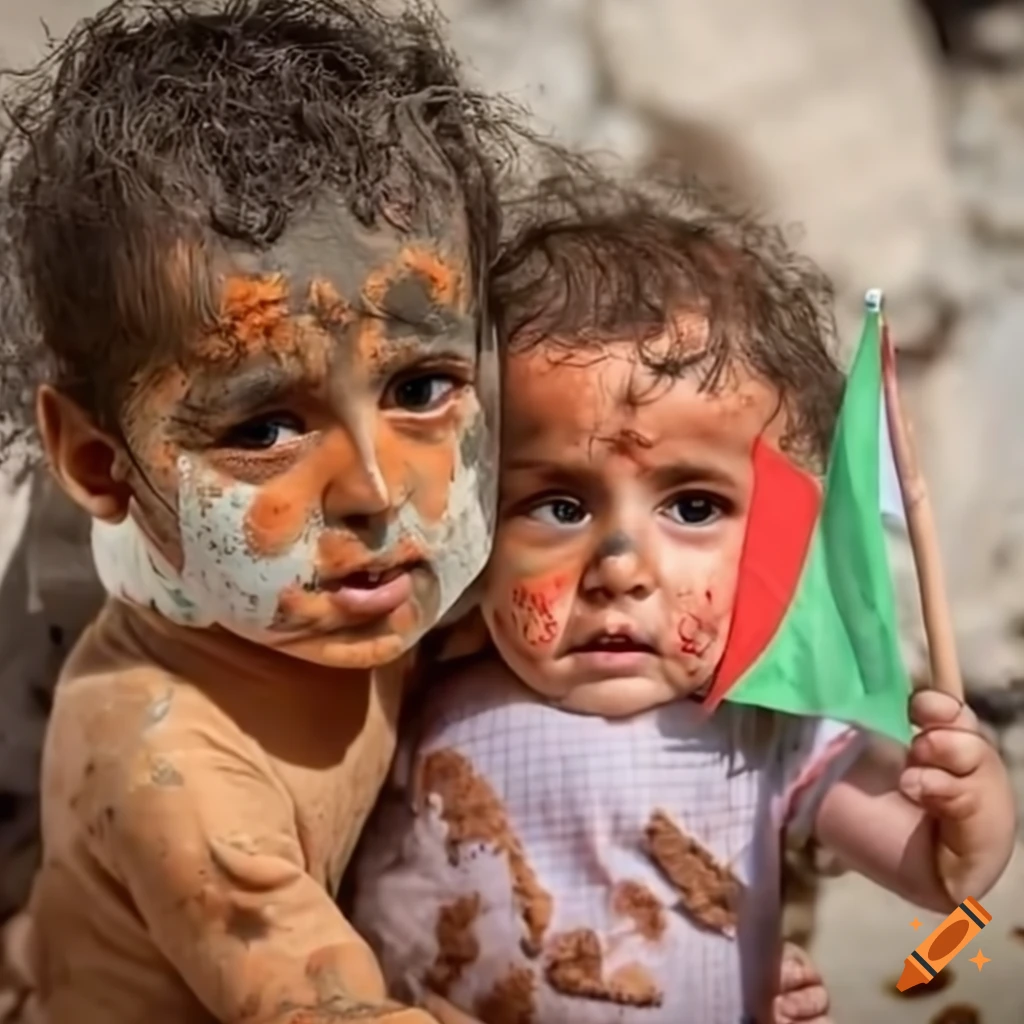
For them, the holy month of Ramadan has become a harrowing ordeal. While Muslims around the world fasted and prayed in the safety of their homes or mosques, the children of Gaza faced a daily struggle for survival. As the sun set each day during Ramadan, Muslims traditionally broke their fast with a date, following the example of the Prophet Muhammad (PBUH).
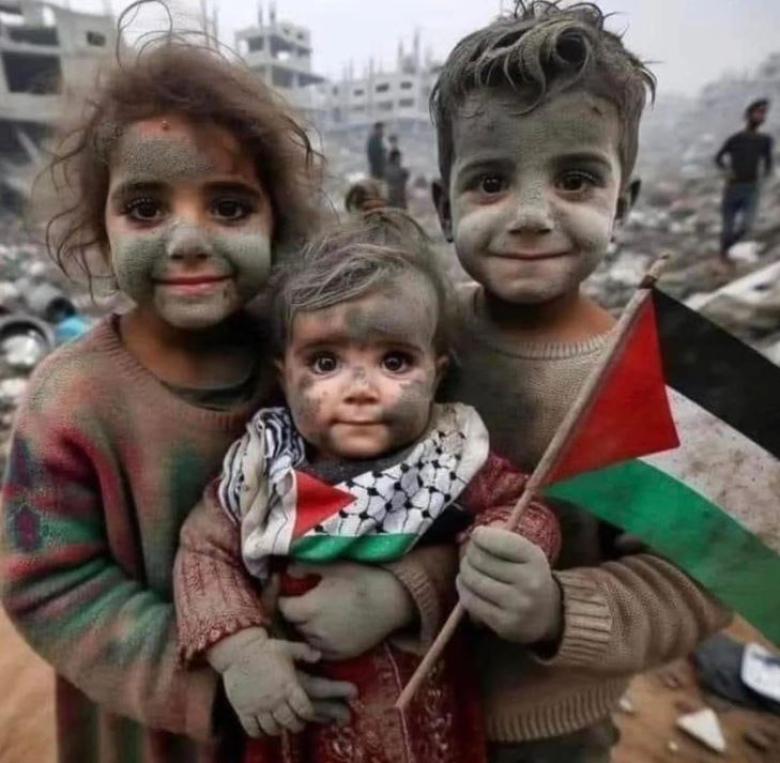
But this Ramadan in Gaza, families are compelled to consume leaves and animal feed to endure the scarcity of food, with no dates available to mark the end of their fasts. The harvesting of dates, along with other food production, has been utterly devastated. Furthermore, as part of their constraints on aid entering the Strip, Israeli authorities allegedly categorized dates as “dual-use” items, claiming they could potentially be repurposed for military purposes. Consequently, aid shipments containing dates were rejected, as x-ray imaging flagged their seeds as suspicious objects.
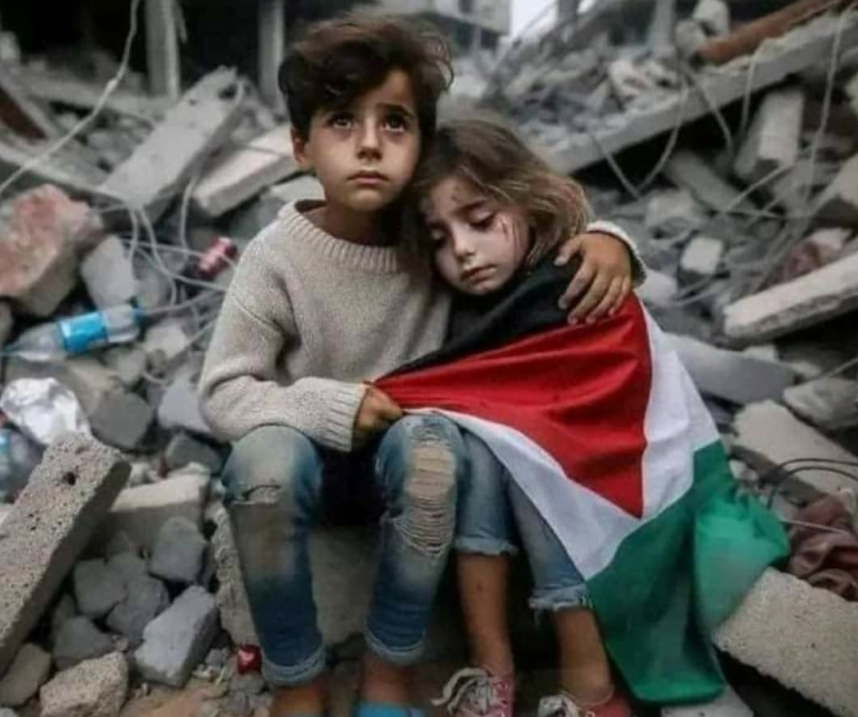
Certainly, dates are not the sole food item lacking in Gaza this month. After enduring five months of war, which resulted in significant destruction of food production infrastructure and impeded aid delivery, there is scarcely any food available at all.
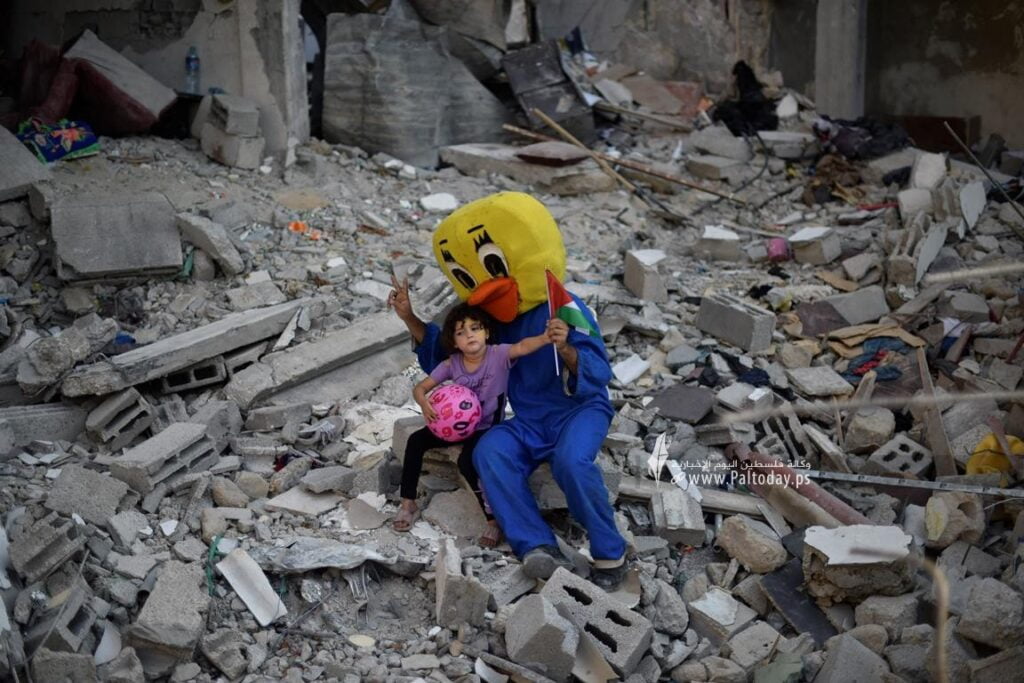
Furthermore – according to the international organization, Save the Children, there is a total absence of education in Gaza, leaving 625,000 children out of school. Over 1 million children in Gaza are in need of mental health support. 5,500 babies, or 180 per day, are due to be born in the next 30 days. More than 600,000 children are now trapped in Rafah with nowhere else to flee.
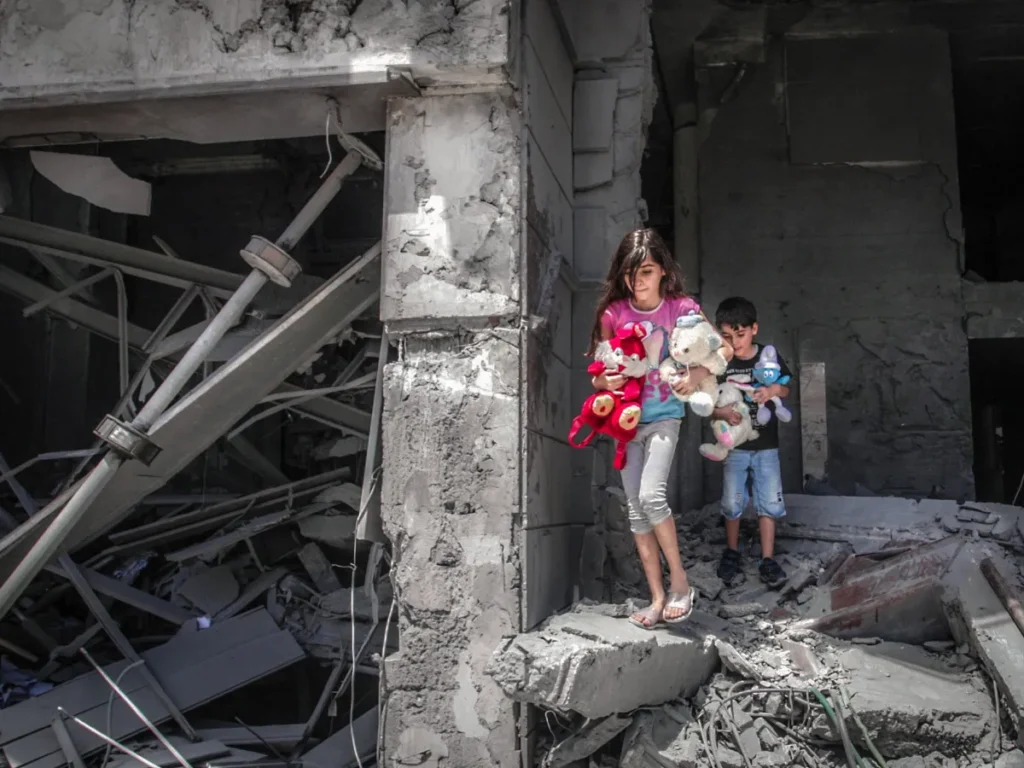
The magnitude of loss and devastation is immense. With tanks ready to advance into Rafah, where the majority of Gaza’s population has fled due to increasing hunger and disease, this conflict is on the brink of its most lethal phase.

Over 1.3 million displaced individuals in Gaza, with over 610,000 being children, are currently squeezed into a mere 24 square miles, which is less than a fifth of Gaza’s total land area. As Israeli assaults on Rafah escalate, a region already among the most densely populated globally, there are no safe havens left to seek refuge.
The conditions necessary for delivering humanitarian aid to children in Gaza are not just unmet but are deteriorating. After enduring five months of siege and incessant bombardment, children’s mental well-being in Gaza is being pushed to its limits. They have endured unimaginable psychological trauma from the violence, significant physical injuries resulting in the loss of limbs, and the devastation of losing their families, homes, and schools.
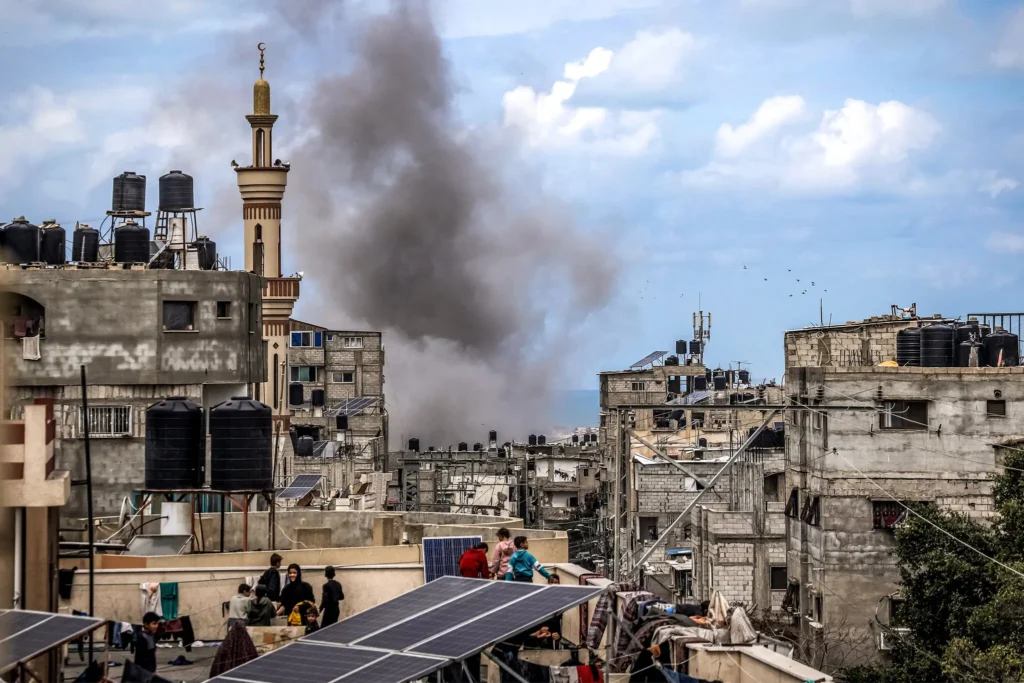
Everyone in Gaza is now at risk of famine and facing crisis levels of food insecurity or worse. Five months of constant bombardment and restrictions have created the conditions for an exponential rise in malnutrition, with extremely limited access to food and water.
Nearly all families have lost loved ones to the conflict. On Eid, they will visit graves, offering prayers and seeking solace. Children will learn about resilience and honouring the departed.
Children, even in the midst of adversity, find ways to play. They might create toys from scraps, play simple games, or draw pictures. These moments provide brief respites from the harsh reality of the doomsday scenario they face everyday.
Above all, children in Gaza will hold onto hope – for peace, for safety, and for a brighter future. Their resilience is a testament to the human spirit.
Ironically, Jews – who faced Hitler’s brutality in concentration camps and survivors recall the painful memories of the holocaust with horror – are targeting the hapless children of Gaza with brutality and viciousness.
Amidst these gloomy and painful moments, at the 96th Oscar Awards ceremony held at the Dolby Theatre in Ovation Hollywood on March 10, 2024, a heartrending poem “Dear Child”, written and rendered by Pulitzer Prize winning journalist and author Chris Hedges took the viewers on an uncompromising journey into the life of a child from Gaza living under Israeli bombardment.
There was not a single eye sans tears at the Oscar awards ceremony, when Chris Hedges intentionally challenged the viewers to share the painful suffering of the children of Gaza and admitted that the world has failed them in bringing an end to their pain and anguish.
As we observe Eid in our own traditions, let’s keep these children in our thoughts and pray for their safety and for enduring peace in their homeland.
